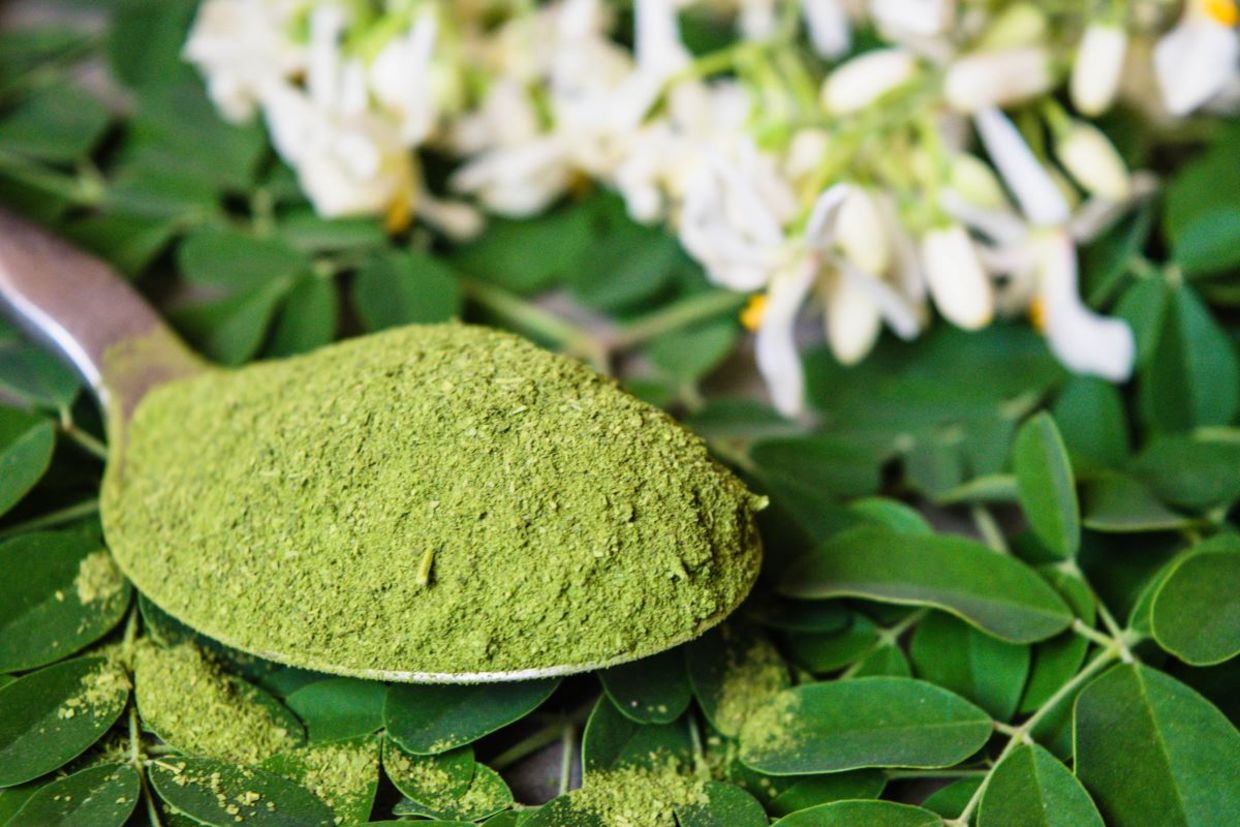
(Red Confidential / Shutterstock.com)
Sometimes the newest health trends have deep roots in the past. That is the case for moringa, an herb that grows on the moringa tree, that has been used in traditional Indian healing since ancient times. This medicinal plant contains a host of healthy bioactive compounds, according to Everyday Health.
Now the health benefits of moringa are available in a powder, oil, dried leaves, or as a supplement. But before beginning to take a new supplement, please discuss with your physician the dosages, benefits, and risks.
You can add moringa powder or leaves to teas, lattes, smoothies, oatmeal, or cooked into other foods. Check out these five health benefits of moringa:
Antioxidant rich
Antioxidants are naturally occurring compounds that protect against free radicals that cause oxidative stress that could damage your cells and increase your risk of chronic diseases like type 2 diabetes, heart disease, and some cancers. According to Healthline, moringa contains several antioxidants including beta-carotene, vitamin C that helps your immune system, quercetin that can help lower blood pressure, and chlorogenic acid which could help moderate blood sugar levels.
Contains anti-inflammatory properties
Inflammation is your body’s normal response to an infection or injury but if it continues and becomes a chronic issue, it can cause many health issues. While many plants have anti-inflammatory properties, moringa contains isothiocyanates that are found in the herbs leaves. Isothiocyanates has been found to be effective in providing relief from pain and inflammation.
Could lower sugar levels
Moringa could help lower your blood sugar levels, which is very important for diabetics. That’s because overtime, high blood sugar levels increase the risk of serious health problems including heart disease and kidney disease. A 2012 study, published in the Journal of Food Science and Technology, found that women who took 7 grams (1.5 teaspoons) of moringa leaf powder for three months reduced their food sugar levels by 13.5 percent.
May improve memory
Keeping your memory sharp as you age is very important for a healthy and active retirement. Moringa could help aid cognition due the antioxidant and neuroprotective compounds, quercetin and chlorogenic acid, it contains, according to Everyday Health. These compounds have been linked to cognition, improved spatial memory, and reduced neurodegeneration.
Helps support the immune system
Moringa can also help to boost your immune function due to its high levels of Vitamins A and C. This medicinal plant also has antimicrobial properties that can help prevent infections and protect you from foodborne bacterial illnesses. A 2022 study of the antibacterial effects of moringa found that it can protect against Staphylococcus aureus and E.coli.
YOU MIGHT ALSO LIKE:
Exploring the Benefits of Phytonutrients
5 Ways to Promote Health With Perilla Oil
9 Foods to Support Your Immune System This Fall







